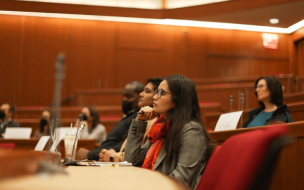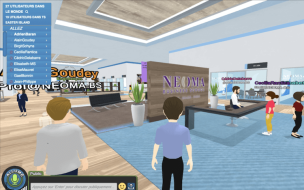The research, which was put together by the AACSB (Association to Advance Collegiate Schools of Business) Innovation Committee, looked at successful generative AI examples being used by top business schools worldwide.
It found that the most positive uses of generative AI was in its implementation to innovate the curriculum, enhance learning experiences, and to aid in operations and decision making.
This coincides with a recent study published by GMAC, which revealed that AI is increasingly being considered a curriculum must-have by b-school students.
The 3 Top Generative AI Examples For Business Schools
In terms of curriculum innovation, some of the technology’s main value drivers include jumpstarting course design, incorporate emerging business trends, and enabling continuous refinement of learning materials, according to the study.
Generative AI can lead to a more personalized education, the report found, such as access to interactive learning and immediate feedback, ultimately creating an augmented classroom environment.
The tool is equally valuable in administration. It can streamline applicant evaluation, forecast budgets, automate responses to student inquiries, and optimize course scheduling.
AACSB identified examples of generative AI being used successfully in these three ways at Hong Kong University of Science and Technology (HKUST), Yale School of Management, and Neoma Business School.
Other innovative implementations can be seen in universities such as the Rotman School of Management, which has launched a three-day executive learning program to prepare executives and senior managers with the skills needed to leverage generative AI in their organizations.
Similarly, Villanova Business School’s O’Donnell Center for Professional Development teaches students how to use AI to help identify career paths, as well as how to align skills and experiences in their job search—including writing authentic resumes and cover letters.
However, the report was careful to outline that the use of GenAI can be both positive and negative.
Particular areas of concern regarding generative AI as a learning tool include potential job losses, reduction in critical thinking and creativity, the proliferation of biases in admissions and student evaluation, and the risk of increased instances of plagiarism.
There is also the possibility that its use could devalue human-centric skills, such as empathy, leadership, and negotiation.
Finally, the report emphasized the importance of students being made aware of the potential cons of embracing this new technology, so that they can become competent leaders capable of solving top-priority problems.








